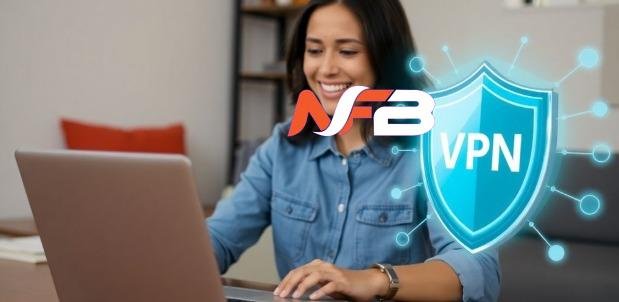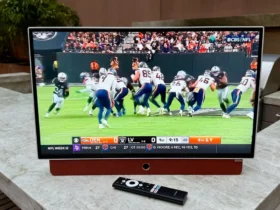Thinking about using a Free VPN? It sounds great, right? Like getting something for nothing. But it’s not always that simple. Many free services have hidden costs, like slower speeds or showing you ads. Sometimes, they might even sell your data. This guide will help you sort through the options, understand what you’re really getting, and pick a Free VPN that won’t cause headaches later
Understanding the Nuances of Free VPN Services
When you see the words “free VPN,” it sounds pretty great, right? Who wouldn’t want to protect their online activity without spending a dime? But, like most things that seem too good to be true, there’s usually a catch. Understanding these free services is the first step to picking one that won’t cause headaches later.
The True Cost of ‘Free’ VPNs
Let’s be real: running a VPN service costs money. Servers, bandwidth, development – it all adds up. So, if a company isn’t charging you directly, how are they making money? Often, the “free” aspect means you’re paying in other ways, usually with your data or by being shown ads. It’s not always a bad deal, but it’s important to know what you’re getting into, especially if you’re comparing it to the best and cheapest VPN options that offer more transparency and stronger privacy policies.
Data Monetization and Advertising Models
Some free VPN providers make their cash by selling user data to third parties. This could include your browsing habits or even your IP address. Others might inject advertisements into your browsing sessions or redirect you to specific websites. It’s a way for them to keep the lights on, but it definitely compromises the privacy you’re trying to achieve with a VPN in the first place.
Limitations in Speed and Service
Beyond data concerns, free VPNs often come with significant limitations. You might experience much slower connection speeds compared to paid services, making streaming or downloading files a frustrating experience. They might also limit how much data you can use each day or month, or restrict access to certain servers. Think of it like a free sample at the grocery store – it’s a taste, but not the full meal.
Evaluating Security and Privacy Features
When you’re looking at VPNs, especially the free ones, security and privacy are the big things to check. It’s not just about hiding your IP address; it’s about what the VPN company itself is doing with your information. Think of it like this: you’re letting this company see everything you do online, so you really need to trust them.
Assessing Vendor Experience in Security
The VPN market has a lot of new players, and not all of them have a long history of dealing with security. Some companies are just starting out, and it’s hard to know if they really know what they’re doing when it comes to protecting your data. Look for providers that have been around for a while and have a good track record. It’s also smart to see if they talk about how they handle security updates and if they’re transparent about their software.
Deciphering Privacy Policies and Data Logging
This is where things can get tricky. Many free VPNs will say they don’t log your activity, but when you read the fine print in their privacy policy, it might tell a different story. Some might collect connection logs, or even worse, sell your browsing data to advertisers to make money. Always read the privacy policy carefully. If it’s full of confusing legal talk or seems to allow them to collect more data than you’re comfortable with, it’s probably best to look elsewhere. Independent audits are a good sign, as they show a company is willing to prove its claims.
The Impact of Server Network Size on Security
While a large server network might seem like it’s just about getting better speeds or more location options, it can also play a role in your security. A bigger network means your traffic is spread out across more servers. This can make it harder for anyone trying to track your activity back to you. However, the size of the network isn’t the only factor; the security practices of the company running those servers are what really matter.
Navigating Free Trial VPN Options
So, you’re looking to try out a VPN before you commit to paying for it, right? That’s a smart move. It’s like test-driving a car before you buy it – you want to make sure it actually works for you. Best free VPN trials are your best bet for this. They let you poke around, see how fast it is, and if it actually unblocks that streaming service you like.
But here’s the thing: not all trials are created equal. Some make you give them your credit card info upfront, which can be a bit of a hassle if you forget to cancel. Others might have super short trial periods, barely enough time to figure out if it’s any good. And then there are the ones that are basically just a limited free version, not a real trial of the full service.
Leveraging Free Trials for Performance Verification
When you sign up for a trial, the first thing you should do is put it through its paces. Connect to different servers, in different countries. See how quickly you can load websites or stream videos. Does it slow down your connection too much? That’s a big deal if you’re trying to watch something without constant buffering. You can also check if it actually hides your real IP address. A quick search online for “what is my IP” while connected to the VPN should show the VPN’s IP, not yours. This is a pretty basic check, but important.
Identifying No-Risk Trial Options
Look for trials that don’t ask for your credit card details. These are the easiest to use because you don’t have to worry about accidentally getting charged if you forget to cancel. Some providers offer these, especially for mobile apps, which is pretty convenient. If a trial does require payment info, make sure you know exactly how long the trial lasts and when you’ll be billed if you don’t cancel. Setting a reminder is a good idea.
Comparing Trial Durations and Features
Here’s a quick look at what some popular VPNs offer for trials:
| VPN Provider | Trial Duration | Credit Card Required? | Key Features Tested |
| NordVPN | 7-30 days | Sometimes | Speed, server access, streaming |
| ProtonVPN | Free plan available | No | Speed, server access, data limits |
| CyberGhost | 24 hours – 45 days | Sometimes | Speed, server access, ease of use |
It’s not just about how long the trial lasts, though. Check what features are included. Can you access all the servers? Is the speed capped? Does it let you connect on multiple devices? These details matter when you’re trying to see if the full paid service will be worth your money.
Key Considerations for Choosing a VPN
So, you’ve decided to look into VPNs, which is a smart move for your online privacy. But picking the right one, especially a free one, can feel like a maze. Let’s break down what really matters when you’re making this choice.
Prioritizing Online Anonymity and Data Protection
When you’re thinking about a VPN, the biggest thing is keeping your online activities private. This means looking at how the VPN company handles your data. Do they keep logs of what you do? A good VPN provider will be upfront about this. You want a service that clearly states it doesn’t log your browsing history or connection details. It’s like choosing a diary that locks itself – you want to know it’s truly private.
Understanding the Role of VPN Server Tunnels
A VPN works by creating a secure tunnel for your internet traffic. Think of it like a private road for your data, hidden from public view. The quality of this tunnel affects your speed and security. Different VPNs use different types of tunnels and encryption methods. It’s worth checking if the VPN uses strong encryption, like AES-256, which is pretty standard for keeping things safe. You want that tunnel to be as solid as possible.
Factors Beyond Just Server Count
Lots of people look at the number of servers a VPN has, thinking more is always better. While a large server network can be good for finding faster connections, it’s not the only thing. You should also consider where those servers are located. If you need to access content from a specific country, make sure the VPN has servers there. Also, think about the provider’s history and how they handle security. A company with a solid background in cybersecurity is generally a safer bet than a brand new one with little known about them. It’s not just about quantity; quality and location matter too.
Exploring Top-Tier VPN Providers
When you’re looking for a top-tier VPN, it’s not just about picking the first name you see. You’ve got to do a bit of homework. Think about what you’ll actually use the VPN for. Are you trying to stream shows from another country, or is it more about keeping your online activity private when you’re out and about? Different providers are better suited for different jobs.
Assessing Leading VPNs for Overall Performance
When we look at the big players, we’re checking a few things. Speed is a big one, obviously. Nobody wants a VPN that slows their internet to a crawl. We also check how easy they are to use. If you have to spend an hour figuring out how to connect, that’s not great. Then there’s reliability – does it drop connections often? We want a VPN that just works.
Identifying VPNs with Extensive Server Networks
More servers in more places usually means better performance. It’s like having more roads to choose from; if one is jammed, you can hop on another. A wide network helps with speed because you can connect to a server that’s geographically closer to you. It also means you have more options for bypassing geo-restrictions. We looked at providers with servers spread across many countries.
Choosing Based on User Interface and Features
Beyond just connecting, what else can the VPN do? Some offer extra security features, like kill switches that cut your internet if the VPN connection drops. Others have split tunneling, letting you choose which apps use the VPN and which don’t. The interface matters too. A clean, simple design makes managing your connection and settings much easier. We found that some VPNs are really good at this, making them simple to use even if you’re not super tech-savvy. For example, some of the best free VPNs offer a good starting point, but paid services often have more advanced options.
It’s easy to get caught up in all the technical details, but remember what matters most is that the VPN does what you need it to do, reliably and without a fuss. Don’t get swayed by flashy marketing if the core service isn’t up to par.
Here’s a quick look at what some top providers offer:
- ExpressVPN: Known for its speed and ease of use, it’s a solid all-rounder. They have a good reputation for privacy and a large server network. Many people find their one year plan is the best value.
- NordVPN: This one is often praised for its security features and speed. It’s a good choice if you’re looking for a no-logs VPN that works well with streaming services.
- Surfshark: A great option if you need to connect a lot of devices. It’s budget-friendly and offers unlimited simultaneous connections, plus a good number of servers worldwide.
Maximizing Your VPN Experience
So, you’ve picked out a VPN, maybe even a free one to start. That’s great! But how do you actually get the most out of it without running into problems? It’s not just about flipping a switch and forgetting about it. There are a few things you can do to make sure your online time is safer and smoother.
Best Practices for Secure VPN Connections
Keeping your connection secure is pretty straightforward if you follow a few rules. First off, always make sure your VPN app is updated to the latest version. Developers are always patching up potential security holes, so an old version could leave you exposed. Also, when you connect, try to pick servers that are geographically closer to you. This usually means a faster, more stable connection. If you’re using a public Wi-Fi network, like at a coffee shop or airport, always connect to your VPN before doing anything else. This creates a secure tunnel for all your data, stopping anyone snooping on the network from seeing what you’re up to. It’s like putting your important mail in a locked box before sending it.
Utilizing VPNs for Enhanced Online Privacy
Using a VPN is a big step towards better online privacy. It masks your real IP address, making it much harder for websites, advertisers, or even your internet provider to track your online activities back to you. Think of it as giving you a temporary, anonymous online identity. For truly private browsing, consider using VPNs that have a strict no-logs policy. This means they don’t keep records of your online actions. It’s also a good idea to combine your VPN use with other privacy tools, like private browsing modes in your web browser or using search engines that don’t track you. This layered approach offers more robust protection.
Testing VPNs Before Committing to a Subscription
If you’re thinking about upgrading to a paid VPN service, don’t just jump in. Most reputable providers offer free trials or money-back guarantees. This is your chance to really put the VPN through its paces. See how fast the connections are, if it works with the streaming services you use, and how easy the app is to manage. You can test out different servers to find the best performance for your needs. For example, if you want to stream content from another country, test servers in that region. Many services, like Windscribe, even offer limited free plans that let you try out the service before you pay. It’s a smart way to avoid buyer’s remorse and find a VPN that actually fits your life. Try a free VPN first to see if it meets your needs.
Wrapping Up Your Free VPN Search
So, you’ve looked into the options for free VPNs. It’s not always easy to find one that truly works well without costing you anything. Many free services have limits, or worse, might not be great for your privacy. Remember, testing a VPN with a free trial is often the best way to see if it fits your needs before you commit. Keep an eye out for those trials that let you test drive the service without a credit card, or at least offer a solid money-back guarantee. Ultimately, the goal is to find a VPN that keeps you safe online without any unwanted surprises.
Frequently Asked Questions
What exactly is a VPN and why should I care about choosing one?
Think of a VPN as a secure tunnel for your internet activity. When you use a VPN, your online actions are hidden from others, including your internet provider. The VPN company itself can see what you’re doing, so it’s super important to pick a company you can trust with your information. Some VPNs might sell your data or show you ads to make money, which is why it’s key to choose wisely.
Are free VPNs really free, or is there a catch?
Many free VPNs aren’t truly free. To make money, they might track your online activity and sell that data, or bombard you with advertisements. Sometimes, they also limit how fast you can connect or how much data you can use, making them less useful for things like streaming or downloading.
What are the most important things to look for when choosing a VPN?
When picking a VPN, check out how experienced the company is with keeping things secure. Also, read their privacy policy carefully to see if they keep records of what you do online. The number of servers a VPN has can matter too; more servers often mean a better, more reliable connection.
Why are free trial VPNs a good idea?
Free trials let you test out a VPN’s speed, see how easy it is to use, and check if it works well for what you need, like watching videos or playing games. It’s like taking a car for a test drive before you buy it. Some trials don’t even ask for your credit card info, making them totally risk-free.
Are there VPNs that offer a completely free version versus just a free trial?
Some VPN services offer a free plan that you can use forever, but these usually have limits on speed or how many servers you can connect to. Others provide a free trial period, like 7 or 30 days, where you get full access to their premium service. After the trial, you usually have to pay to keep using it.
Can I get a VPN with unlimited data for free?
Yes, some VPNs, like ProtonVPN, offer a free plan that doesn’t expire and has unlimited data. However, these free versions often have slower speeds and fewer server choices compared to their paid versions. For the best experience, especially for streaming or heavy downloading, a paid VPN or a VPN with a generous free trial is usually better.














Leave a Reply